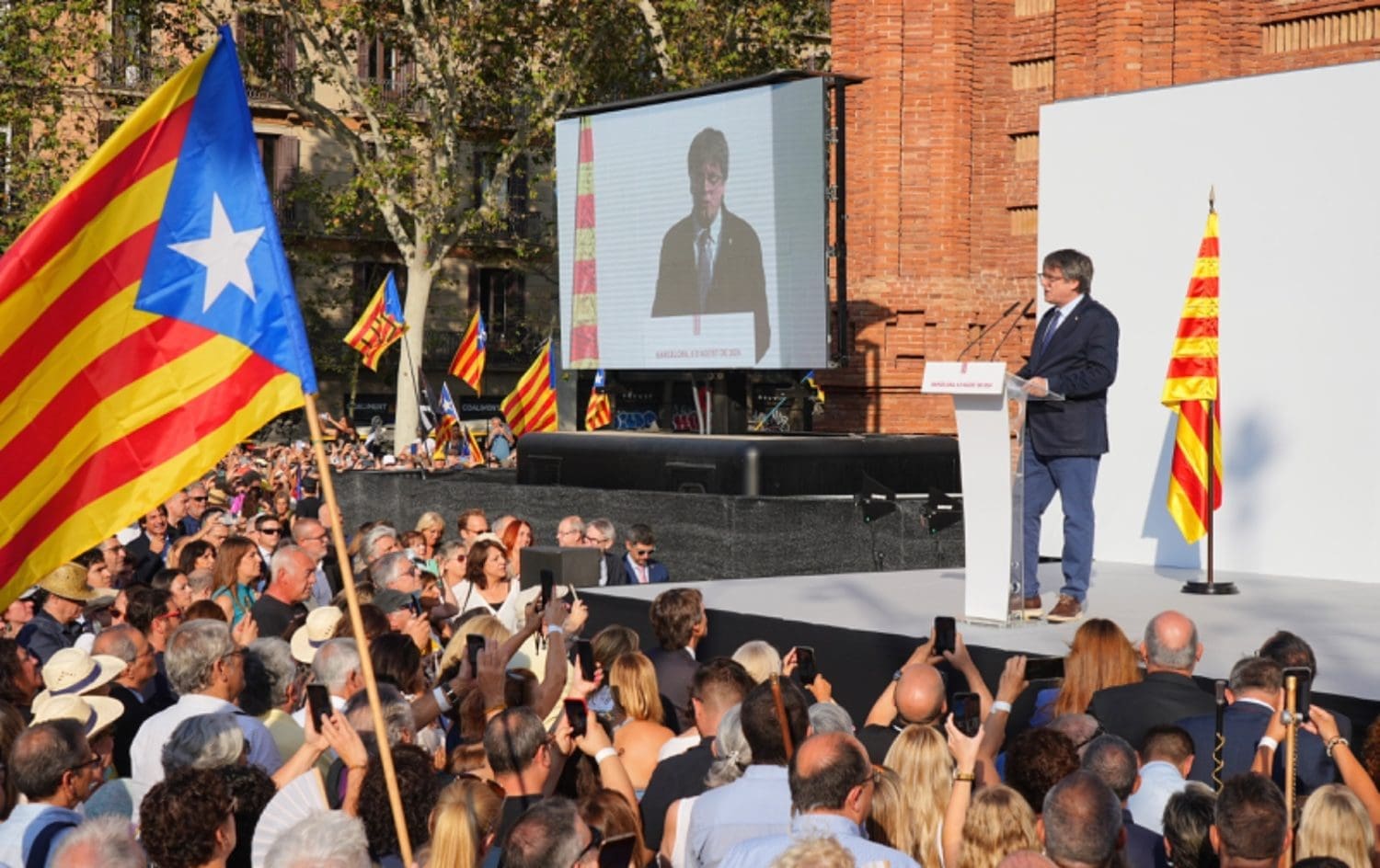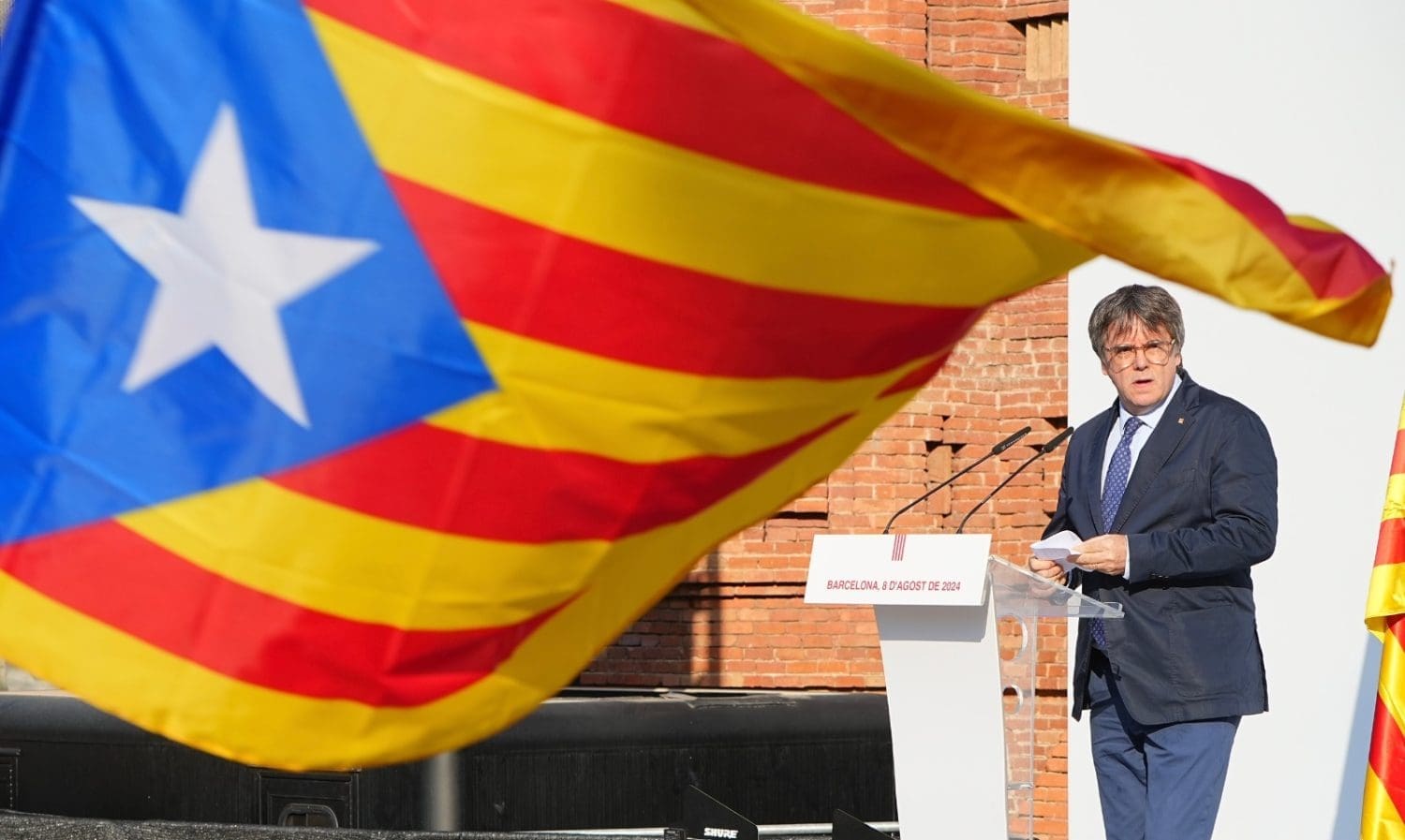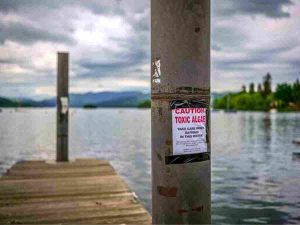Since 1714 Spain has treated Catalonia as a colony, with a fiscal plundering of €22 billion a year (10% of Catalonia’s GDP) and with a discriminative anti-Catalan attitude. This has persisted to this day, and that is why we need Catalan independence. We organised a referendum of self-determination in 2017 and, as a result of the repression that followed, president Puigdemont had to spend seven years in exile in Belgium.
Sánchez’s political moves
This year, due to the need of president Pedro Sánchez to get the votes of Puigdemont’s party, Junts, an amnesty law was passed on 11 June that would put an end to the repression, among others, of Puigdemont. For this reason, during the Catalan electoral process on 12 May Puigdemont said that he would return to Catalonia to participate in the investiture of the future president of the Catalan government.
The repression has made the other major pro-independence party, ERC, leave the confrontation behind and try to pacify the country. However, this has led it to lose a lot of votes from the most active and demanding pro-independence supporters.
Another pro-independence party, the CUP – disoriented in this scenario – has also been losing a lot of votes. In the last elections for the Catalan government, repression has once again made it impossible for candidate Puigdemont to campaign in Catalonia; he has had to campaign from a distance via the internet, and he has not been able to participate in the television debates either.
In the end, this abnormal context has been influencing the pro-independence movement to lose the absolute majority it had held for the last twelve years.
The PSC, an anti-independence party of Spanish president Sánchez’s own, came first but needed the votes of ERC to reach an absolute majority. And ERC, to avoid new elections (in which it would have lost even more), has given its votes so that the PSC can govern Catalonia in a kind of pacified colony, in exchange for a hypothetical fiscal sovereignty for Catalonia (a promise that we all know will not be fulfilled because it would go against the fiscal plundering that is at the basis of the Spain-Catalonia relationship).
But the Spanish judges, in continuity with the lawfare with which they have persecuted the Catalan pro-independence supporters, refuse to apply the amnesty law passed by the Spanish Congress, demonstrating with impunity their improper use of justice for political ends.
Puigdemont defiantly returns – albeit briefly
Despite all this, now that Puigdemont has been elected as the deputy of the second most-voted party in the Catalan parliament, he announced that, as promised, he would return to Barcelona on the day of the investiture, 8 August:
The judges gave instructions to the Catalan police who, commanded by ERC and legally obliged to comply, deployed an impressive police operation to prevent Puigdemont from entering parliament.
Then, in front of the crowd that had come to greet him in front of the parliament park, president Puigdemont made a speech, making it very clear that the judges were breaking the law, that the conflict between Catalonia and Spain had not disappeared, and that the Catalans continue to demand Catalan independence:
After the speech, he slipped through the crowd and escaped without being arrested. The police, threatened by the judges, activated Operation Cage, shutting down traffic on all roads in Catalonia in a real manhunt. This operation had only been used against the terrorists who attacked in Barcelona on 17 August 2017.
Now it was used to try to arrest an MP, elected by 700,000 Catalans, accused of embezzlement. Moreover, fraudulently accused by the same judges who now do not want to apply an amnesty law, approved by the Spanish Congress precisely to stop prosecuting him. It would be inexplicable, were it not for the fact that Puigdemont and the Catalan pro-independence supporters are Spain’s number one enemies.
The future is still uncertain
President Puigdemont has circumvented the entire police system and is now back in Belgian exile, having exposed the inadmissible abuse that the judges are committing, with this insubordination and interference in politics from the judiciary.
But no one criticizes them in Spain, and no one intends to do anything about it.
It remains to be seen if Junts will withdraw support for the Spanish government and this will destabilise it. For the moment, the defiant appearance of president Puigdemont in Barcelona has served for the world press to put the Catalan problem back on the front pages, making it clear that the conflict continues and that there will be no political solution until the international positioning of Catalonia is decided by the Catalans themselves.
Featured image and additional images via Josep Balcells, Consell de la República








